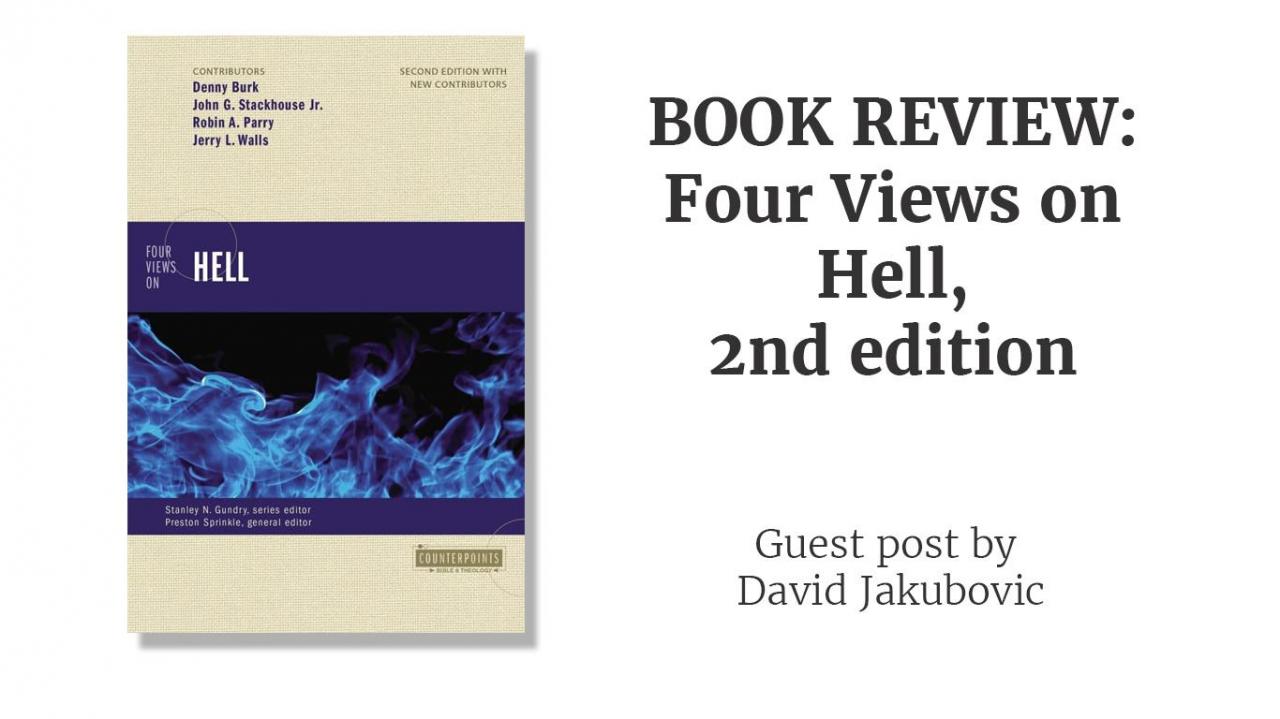Blog Group: Guest Posts (8 posts)
Why God Is Necessary For Morality
Darwin to Jesus | 16th April 2025 |
Guest Posts
Guest post by Darwin to Jesus
Dostoevsky famously said, “If there is no God, then everything is permitted.”
For years, as an atheist, I couldn’t understand what he meant, but now I do…
Here’s a simple analogy that shows why only theism can make sense of morality:
Imagine you just got hired at a company.
You show up, set up your desk, and decide to use two large monitors.
No big deal, right?
But then some random guy walks up to you and says: “Hey, you’re not allowed to do that.”
You ask, “What do you mean?”
They say, “You’re not permitted* to use monitors that big.”
In this situation, the correct response would be: “Says who?”
We’ll now explore the different kinds of answers you might hear — each one representing a popular moral theory without God — and why none of them actually work.
Subjective Morality
The random guy says, “Well, I personally just happen to not like big monitors. I find them annoying.”
Notice that’s not a reason for you to change your setup.
Their personal preferences don’t impose obligations on you.
This is what subjective morality looks like.
It reduces morality to private taste.
If this were the answer, you’d be correct to ignore this person and get back to work — big monitors are still permitted.
Cultural Relativism
Instead, they say, “It’s not just me — most people here don’t use big monitors. It’s not our culture.”
That’s cultural relativism: right and wrong are just social customs, what is normal behavior.
But notice customs aren’t obligations. If the culture were different, the moral rule would be different, which means it isn’t really moral at all.
You might not fit in. You might not be liked.
But you’re still permitted to use big monitors.
Emotivism
Here after being asked “says who?” the person just blurts out, “Boo, big monitors!”
You reply, “Hurrah, big monitors!”
That’s the entire conversation.
This is ...
Doubting Defying Jihad: Questioning the Popular Conversion Story
KingsServant | 12th March 2025 |
Guest Posts
This is a guest post by “KingsServant”
In 2019 a book called Defying Jihad was published by Tyndale House, the reputable Christian publisher telling the story of “Esther Ahmad” a pseudonym used by the author alongside her co-author Craig Borlase, who has previously written alongside, well known Christian personalities such as Matt Redman the singer and Andrew Brunson, an American pastor imprisoned by the Turkish government.
As I began to read this book over this past year I was expecting an encouraging account of how a former Jihadi found Christ and escaped her previous accomplices. Very quickly, however, I became uncomfortable, her descriptions of her background involved allegedly committed Muslims doing very un-Islamic things and the unnamed militant group doing unusual things that didn’t fit my knowledge gained from years of study of Islam and interactions with Muslims, including extremists. As my doubts about the authenticity of the book solidified, and yet I couldn’t find anyone else who had questioned these things before me, or on the other hand provided verification of her story. I decided to contact Craig. During our brief and cordial email exchange he told me that he had been in touch with people who knew Esther after she escaped her family home, but so far has not suggested he has any other lines of evidence confirming any of the key elements of her account before that time. As a result, I am writing this article to draw attention to the aspects that raise suspicion.
According to “Esther’s” story, she was raised in Pakistan where she was sent to an extremist madrassa (or Muslim school) for girls, there they were shown images of victims of violence and told that Christians and Jews were responsible - the emphasis on Jews and particularly Christians by a militant group based in Pakistan is strange. All the terrorist groups in Pakistan direct their efforts towards Hindus (especially in Kashmir) or other Muslims, since Christians are suc...
Where Hal Lindsey and Dispensationalism Went Wrong
Charles Meek | 02nd December 2024 |
Guest Posts
This is a guest post from Charles Meek
Hal Lindsey’s bookThe Late Great Planet Earth
Hal Lindsey’s book The Late Great Planet Earth, first edition in 1970, sold over 40 million copies. Gullible Christians got sucked into Lindsey’s soon-end-of-the-world cult-like poppycock. As time has passed without his version of Armageddon taking place, we can now objectively analyze where Lindsey went wrong:
Lindsey (p. 54, 181), like other dispensationalists, placed the beginning of the end with Israel becoming a nation in 1948. He thought all prophecy would be fulfilled within a 40-year generation (Matthew 24:34). But 1988 came and went, proving him to be a false prophet. (This should be adequate proof that 1948 has nothing to do with Bible prophecy.)
Lindsey (p. 44) prophesied a 7-year, world-wide, tribulation. He got this from Revelation 11 which speaks of the “holy city” being trampled for 42 months — and “two witnesses prophesying” for 1,260 days. He simply adds both of these 3 ½-year periods together to get 7 years (of tribulation). There is NO indication in the text that this is a valid interpretation. He was reading something speculative into the text that is not there. Indeed, there is no passage in the Bible that clearly teaches a 7-year tribulation. Further, Jesus limited the time of the trampling of Jerusalem to his own generation (Luke 21:20–22, 32). Interestingly, the final assault on Jerusalem by the Roman army under Titus lasted 42 months from February AD 67 to August AD 70. This is strong supporting evidence for the Great Tribulation being fulfilled at the Jewish-Roman War ending with the fall of Jerusalem in AD 70.)
Lindsey (p. 87, etc.) saw the existence of nuclear weapons as an important sign of the end times. However, Jesus taught that the so-called “end times” would be when God’s people would “fall by the edge of the sword” (Luke 21:24). Jesus’ prophecies were about ancient warfare, not modern nuclear weapon...
The Deity of Christ in the Gospel of Matthew - Part 2
KingsServant | 01st February 2023 |
Guest Posts
Matthew's theme - The divine presence of Jesus
This is a guest post by “KingsServant”, see Part 1 here.
Having covered Matthew’s introduction to his gospel in his nativity account, we will now consider the way Matthew “bookends” the gospel by beginning his work with the promise of God dwelling with his people (fulfilled in the incarnation) and ending it in the same way with Jesus’ comforting promise never to leave his followers.
This theme of Matthew begins with his quotation of Isaiah 7:14, which we have already analysed in the previous article with regard to how it reveals Matthew’s teaching that Jesus is God.
As noted before, in Matthew 1:23, Matthew draws special attention to the meaning of the name Immanuel and sees the birth of Jesus as necessary for its ultimate fulfilment.
Matthew 1:23: “Behold, the virgin will conceive and give birth to a Son, and they shall name Him Immanuel,” which translated means, “God with us.”
Matthew also ends his gospel, following the resurrection, with this promise of Jesus;
(Matthew 28:20): “…teaching them to follow all that I commanded you; and behold, I am with you always, to the end of the age.”
Matthew emphasises the point at both beginning and end that Jesus is “with us”. First, in 1:23 he combines this with calling Jesus God. Second, he records Jesus as claiming his perpetual presence with his people wherever they are.
To understand the importance of Matthew’s choice of this theme an overview of this subject in the Old Testament is needed.
In the book of Genesis man is created (and woman from his side), then they are placed in the garden of Eden where they enjoy the presence of God who walked with them, until they act disobediently to him after which he came to them and it is written;
(Genesis 3:8): “Now they heard the sound of the Lord God walking in the garden in the cool of the day, and the man and his wife hid themselves from the presence of the Lord God among the trees ...
The Deity of Christ in the Gospel of Matthew - Part 1
KingsServant | 22nd December 2022 |
Guest Posts
The titles “Jehovah” and “God” given to Jesus in Matthew 1
This is a guest post by “KingsServant”, see Part 2 here.
In this series of articles, I want to present the case that Matthew teaches Jesus is God, from the arguments I made in 2 moderated debates with a Muslim apologist, Mohammed Abd al Razack, commonly known as Al Yemeni. Although I will be going into far more detail, not having to deal with the tight time controls of a debate format.
The moderated debate on YouTube with me (KingsServant)
Matthew’s teaching of the Trinity and in particular that Jesus is God is by no means limited to the baptismal formula given by Christ after his resurrection in Matthew 28:19 a text of which the authenticity is often questioned despite not being in doubt. A sound assessment of what Matthew teaches about his main subject “Jesus Christ, the Son of David, the Son of Abraham” (Matthew 1:1), should begin by observing the structure of the book, specifically the way that Matthew chooses to begin and end his Gospel. Matthew, quite reasonably, begins his account of the life of Jesus by describing the circumstances of his birth (1:18). We are told that before having relations with Joseph to whom she was betrothed, Mary was found to be pregnant, Matthew tells us this was through the Holy Spirit, although this, of course, was unknown to Joseph, her husband to be.
Certain questions arise immediately. First, we may note that Jesus being the Son of God in a unique sense (only-begotten) cannot be the result of his conception as a human by Mary as it is the Holy Spirit who begat Jesus as a man, rather than the Father. The Father is never identified as the Spirit and in 28:19 the Father, Son and Spirit are distinguished from each other. Since the Spirit is not the Father, but rather the Father is a distinct person from the Spirit, we can conclude that both the fatherhood of the Father and the sonship of the Son are not the result of his human conception.
The se...
BOOK REVIEW: Four Views on Hell 2nd edition
David Jakubovic | 17th March 2021 |
Guest Posts
This is a guest post by David Jakubovic. The views are that of the author and don't necessarily reflect the views of That Ancient Faith.
A 20 year update of the 1996 book by the same name, this slim volume (211 pages) is a helpful cross-section of current evangelical thought on Final Punishment, sampling Denny Burk on Eternal Conscious Torment (ECT hereafter), John Stackhouse Jr on Conditional immortality (CI hereafter), Robin Parry on Christian Universalism (CU hereafter) and Jerry Walls on (a Protestant) Purgatory. Preston Sprinkle pens both Introduction and Conclusion, plus there are Scripture, Author and Subject indices.
The Introduction sets the scene, listing the 3 historically available views along with speculation about post-mortem purgatorial sanctification, before clarifying that it is not the existence of hell that is here in doubt: “They agree that hell exists, but they differ on what this hell is like.” (11) Sprinkle lists verses used by all 4 views, then introduces the academic background of the 4 essayists. He finally issues a substantial challenge to the reader:
“You, of course, will probably agree with only one of the following essays and disagree with the other three. But keep in mind: disagreement is not refutation. We must be able to refute the evidence of the views that we disagree with and then provide more compelling biblical evidence for the view that we uphold.” (15)
Burk kicks off Chapter One (‘Eternal Conscious Torment’) with a startling parable. He visualizes a man torturing creatures in increasing order of complexity and dignity: first torturing a grasshopper, a frog, a bird, a puppy and finally a human baby. Burk states:
“In each of the scenarios above, the ‘sin’ is the same – pulling the legs off. The only difference in each of these scenarios is the one sinned against…The seriousness of the sin is not measured merely by the sin itself (pulling off the legs) but by the value and the worth of the one bei...
Slavery in the Bible – Does God Condone Slavery?
Joshua Spaulding | 15th September 2020 |
Guest Posts
This is a guest post by Joshua Spaulding from eternalanswers.org. The views are that of the author and don't necessarily reflect the views of That Ancient Faith.
As you read through the Scriptures, you will come across some passages that seem to suggest that slavery is not condemned by God. Some who think this to be the case are sincerely seeking truth, while others are only looking for reasons to discount the Bible.
Some of the passages in question are Exodus 21:2-6, Deuteronomy 15:12-15, Ephesians 6:5 and Colossians 4:1 which provide instruction on the treatment of slaves.
In light of these Scriptures, does God condone slavery?
Before diving too deep into the topic, there is one very important thing we must understand before we can rightly interpret these Scriptures, and others. Forced slavery, like that which was ended in the U.S. in modern-day history, is not always the same as the slavery mentioned in the Bible. This is significant! (Just a side note: there are still to this day an estimated 21-36 million people¹ in slavery across the world.)
Additionally, seeing something such as forced slavery in the Bible does not necessarily mean God approves of it. The Bible consists of legal, historical, poetic, and prophetic books. The historical books are historical accounts of times past and sinful things are not excluded. God knows the heart of man. The laws He gave in regards to slavery were given as grace for those in slavery.We see at least two forms of slavery in the Bible and God gives guidelines, seemingly approving of one of those forms of slavery. We see the type of forced slavery that the Jews, God’s own people, were forced into (Exodus 1:13-14). The Lord delivered Israel from that slavery. So we know that this type of slavery certainly does not have God’s approval (Exodus 6:6). God would not need to “deliver” a people from something that is not sinful and wrong.
So God gives guidelines on one from of slavery, seemingly approving of it to a cer...
Losing a Loved One: A Few Ways to Find Solace
Lucille Rosetti | 29th January 2020 |
Guest Posts
This is a guest post by Lucille Rosetti from thebereaved.org. The views are that of the author and don't necessarily reflect the views of That Ancient Faith.
This week I have a guest post by Lucille Rosetti from thebereaved.org looking at the hard topic of death. As Christians we shouldn't fear death, and ought to look on it with a paradoxical hope, since we know that through Christ death has lost its "sting" (1 Cor 15:55-57) and that we look forward to the Resurrection and life to come. But even with that in mind, the physical and earthly loss is still hard and something we need to process and deal with, and the following guest post aims to help with the practical side of loss which still needs to be dealt with. Leave your thoughts in the comments!
Losing a loved one is difficult. It always comes as a shock and requires you to set aside some time to properly grieve your loss. In addition to dealing with your emotional responses to the loss, there are many important decisions to make after the fact. The advice below may be a good starting point for those who need to figure out their next steps.
Logistical Matters
There are important logistical matters to take care of after someone passes away. Finding their important documents such as a Social Security card, will, or military discharge papers takes precedent. These can let you know if there were special instructions, tax obligations, benefits, and if the deceased wanted to be an organ donor. Make sure pets are taken care of, and locate a legal guardian if there are children who survive the deceased. If your loved one made an arrangement with a funeral home in the past, they may be able to assist with legal matters, especially if your loved one died at home; contact a funeral home if nothing has been arranged. Finally, notify credit reporting agencies so they can look out for possible fraud on the Social Security number and credit cards of the deceased.
Sorting Through Possessions
After a loss, it’s normal ...








